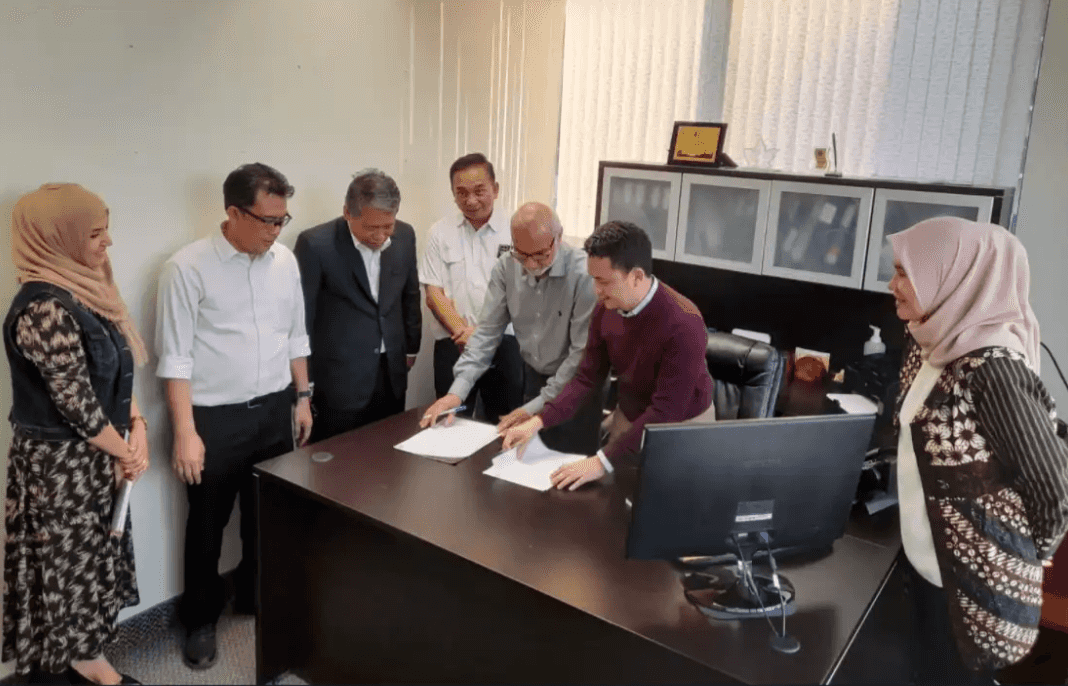Jakarta (BPJPH) - The Halal Product Assurance Organizing Body (BPJPH) of the Ministry of Religious Affairs of the Republic of Indonesia conducted an assessment of two foreign halal certification bodies (HCBs) in Canada. The two HCBs are the Halal Montreal Certification Authority (HMCA) and the Islamic Food and Nutrition Council of Canada (IFANCC).
The Secretary of BPJPH, EA Chuzaemi Abidin, said that the assessment was carried out based on the applications for accreditation and mutual acceptance that had been submitted by the two institutions to BPJPH.
"Since last Wednesday, August 30, we have carried out an assessment of two Halal Certification Institutions in Canada, both of which previously submitted requests for cooperation to BPJPH." said Chuzaemi in Mississauga, Canada, Saturday (2/9/2023).
The Indonesian HCBs assessment delegation were the Assistant Deputy for American and Pacific Economic Cooperation of the Coordinating Ministry of Economy Irwan Sinaga, the Head of the Center of Halal Product Assurance Development and Supervision Dzikro, the Head of the Planning Bureau of the Coordinating Ministry for the Economy Evita Manthovani, four Technical Assessors, four Sharia Assessors, and two secretariat staffs. The assessment activities were divided into 2 teams, namely the assessment team tasked with assessing HMCA in Montreal, and the assessment team carrying out assessments of IFANCC in Toronto.
The Indonesian delegation's meeting with IFANCC President Muhammad Sabir Ali opened the series of assessment activities. The two teams also visited the Halal Slaughtering House and saw the process of slaughtering animals, both cows and poultry.
"This assessment process is very important to carry out considering that this is needed by both countries to maintain and improve existing cooperative relations, especially in the fields of industry and trade in halal products." Chuzaemi said.
On this occasion, Chuzaemi expressed his appreciation for the initiative and enthusiasm of HMCA and IFANCC to have collaboration with Indonesia. According to him, the synergy of reciprocal Halal Product Assurance needs to be accelerated so that its benefits can be immediately felt by both countries.
"Cooperation must also be carried out on the principle of mutual benefit and carried out based on applicable regulations or laws." he added affirmatively.
Furthermore, Chuzaemi said that strengthening international halal product cooperation is in line with the economic potential of halal product industry and trade which is growing and promises to be utilized as well as possible. Moreover, currently the halal industry continues to prove itself as an important pillar of the economy and has become a new growth engine, both at the global and domestic levels. The Dinar Standard report states that Muslims around the world will buy halal products with a value of up to USD 2.8 trillion in 2025.
"Therefore, apart from various other efforts, strengthening international cooperation is also very strategic, especially in order to expand market access for our halal products. As well as opening up more access to raw materials to advance our halal product industry," continued Chuzaemi.
"This is of course also part of our joint efforts to prepare Indonesia as the largest Halal Hub in the world by 2024." he concluded. []

